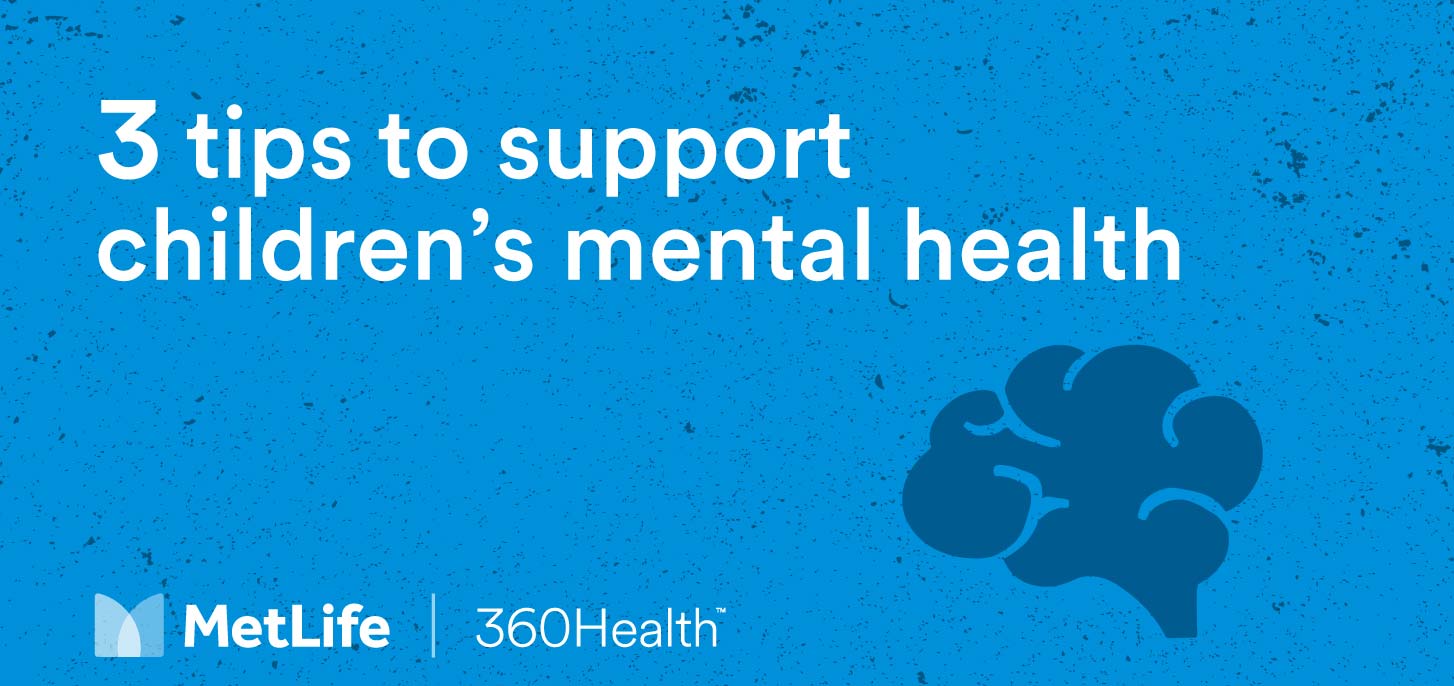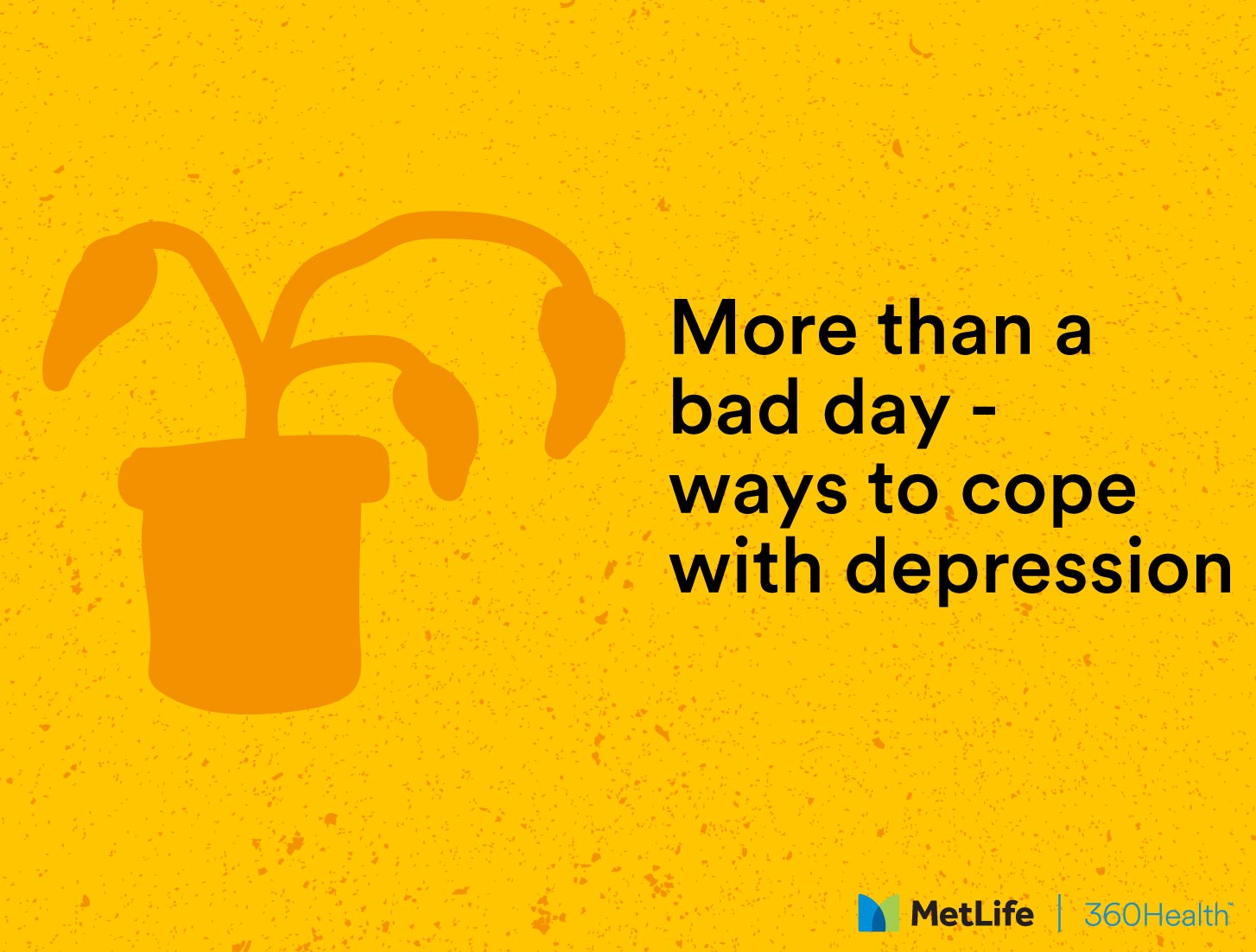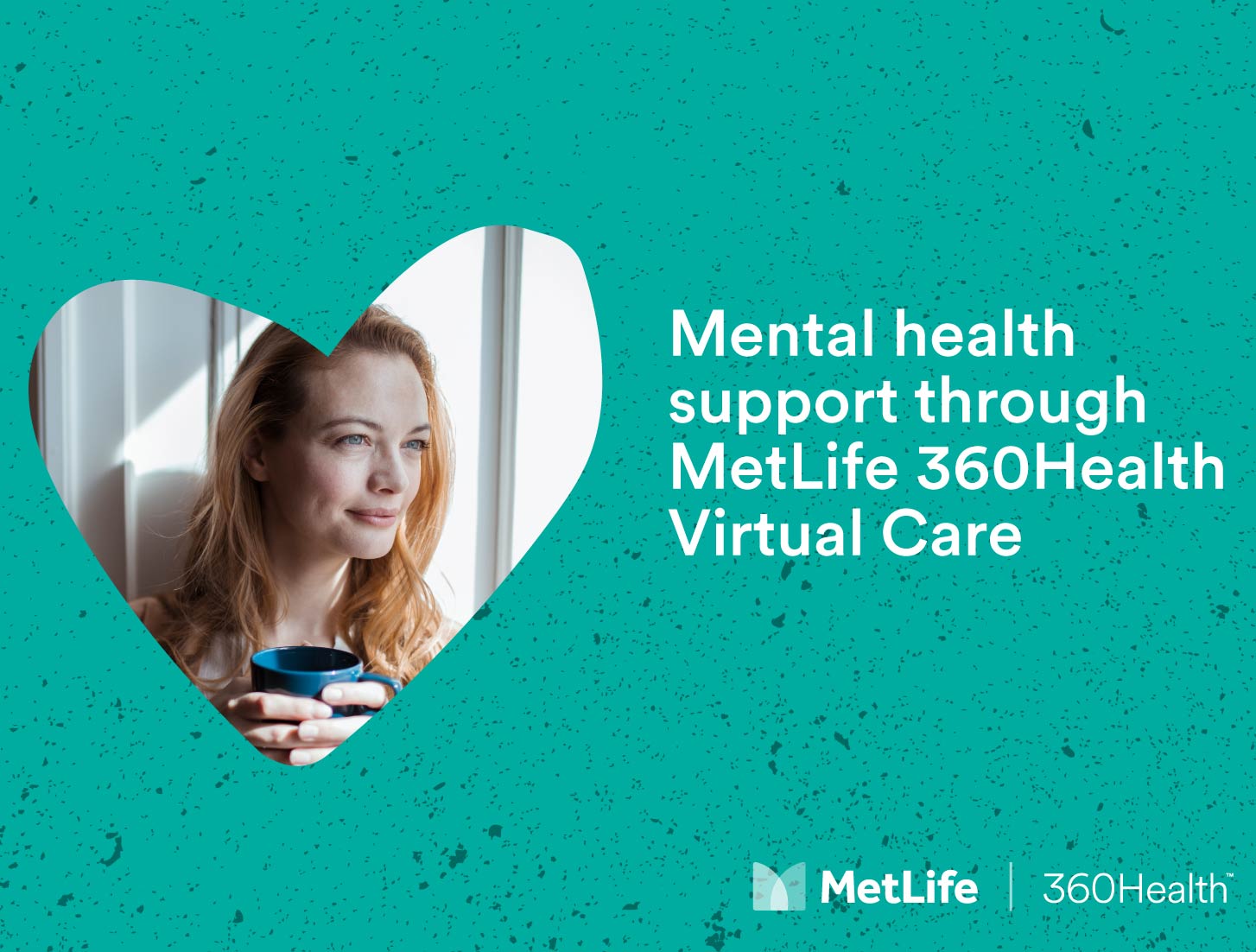
Dr Lorelle Drew, Consultant Psychiatrist at The Victoria Clinic, and Alex Blake, Customer Offer Manager 360Health at MetLife Australia, share some tips on looking after your family's mental health and wellbeing during tough times.
What can parents do to support their children's mental health?
Lorelle: This first thing to do is take care of yourself. The big thing parents can do during a difficult time is put your own 'oxygen mask' on first. Try to look after yourself and get help if you find your emotions and feelings are overwhelming.
Here are some other ways to support your child’s mental health:
Talk openly about mental health: Try to talk about stress and anxiety as being pretty normal responses to what happen.
Reassure them there is hope: With younger children especially, it helps to really reassure them that people are working on the issue.
Allow children to talk about negative feelings: It's OK for everyone to have challenging feelings in response to hard times. Allow them to talk about the things they're disappointed about missing out on. It's reasonable to feel disappointed, and while talking through the issue won't solve it immediately, it can help relieve some of the negative feelings.
Encourage them to be active: Children should be encouraged to connect with friends in the real world. Physical activity is very important for mental health, too.
What are some of the big environmental factors that can affect a young person's mental health?
Lorelle: Anything that causes stress and anxiety triggers mental health concerns – whether it's a sudden event, such as the death of a loved one, or a developing issue. The big environmental factors a lot of people face include:
- Home life – parental stress and fighting, or other conflicts in the family such as financial worries and personality clashes over expected contributions to home life;
- School work – the final year of high school is probably the most challenging time for many students, though stress related to exams and assignments is also common;
- School transition – changing schools or the transition from primary to high school can cause stress as children deal with more academic and social pressures;
- Social connections – changes in peer relationships, particularly as children get older, can feel messy and complex. Bullying and social exclusion are huge concerns and parents should contact the school if their child is involved.
Why is puberty a particularly challenging time for young people's mental health?
Lorelle: During puberty, young people experience a lot of developmental changes, including brain development, triggered by hormones that can make them more vulnerable to mental health issues. Bear in mind there may be gender differences in how mental health issues are expressed. Girls tend to be more comfortable talking about these changes than boys, and they appear more willing to talk about depression and anxiety. Boys certainly experience depression and anxiety, though many of them don't feel comfortable talking about being vulnerable due to how they might be perceived by their friends or family.
What should a parent do if their child talks about suicide?
Lorelle: I think it's really positive that we're having more conversations to address suicide concerns. The most important thing is to take conversations about suicide seriously and ‘be there’ for the young person. Some people might assume the young person is just expressing frustration or anger, or they're being dramatic to get attention, but it's very important they know you're taking them seriously and want to help.
- Try to remain calm and gently let them know you're available for them to talk through what they're feeling and what's going on in their head. If they're willing to talk, try to listen more and allow them to express their feelings in their own words. And then make a plan to get help for them.
- Don't leave the young person alone while you get help – either sit with them, or have a trusted friend or family member sit with them.
- Call a mental health service for advice:
- SANE Australia (people living with a mental illness): 1800 18 7263;
- Beyond Blue (anyone feeling depressed or anxious): 1300 22 4636 or chat online;
- Black Dog Institute (people affected by mood disorders): online help;
- Lifeline (anyone having a personal crisis): 13 11 14 or chat online;
- Suicide Call Back Service (anyone thinking about suicide): 1300 659 467.
- Get urgent help if needed, either from the Emergency Department at your local hospital or local mental health service.
- Make a recovery plan with the young person, including counselling or medical treatment if necessary and social support.
What are some of the ways MetLife is encouraging more conversations about mental health issues and the help available?
Alex: We're providing more content around mental health because we want to be there for people, whether at claim time, during difficult times, or any other challenging situations. Mental health is a major part of MetLife's 360Health program, which aims to help Australians live healthier for longer by focusing on mental, physical, social and financial health, as well as work factors.
We haven't reinvented the wheel, though: we're working with several great organisations in the mental health space to provide more information to our members.
We're also launching a series of guides to support people's overall well-being, with resources to support improved mental health as a key driver. And we're building on MetLife's Health Connect, which helps people access health information through simple bundles that can be emailed or sent via SMS. Finally, we’re partnering with Teladoc Health to deliver an extensive program called 360Health Virtual Care. This includes a service called Mental Health Assist, which provides access to mental health specialists for second opinions and treatment planning.
MetLife offers 360Health Virtual Care at no additional cost to eligible MetLife customers* via Teladoc Health and to get started, it is as easy as...
- Visit MetLife 360Health
- Input your details and request a call back.
What role does an insurer play in helping people address mental and other health concerns?
Alex: Traditionally, as a life insurer, we used to only have interactions with customers once they start a claim, and by then it's often too late. They've either had a diagnosis or are going through treatment.
We recognise that prevention, spotting the signs of an issue early and accessing help as soon as practical can make a big difference to outcomes. So, we're helping our members learn more about what they can do to reduce risks associated with serious illnesses such as cancer, diabetes and mental health.
By providing access to expert information about health, finances and well-being, we're aiming to help our members become more knowledgeable about positive ways to look after themselves and their families – and improve their overall quality of life.














